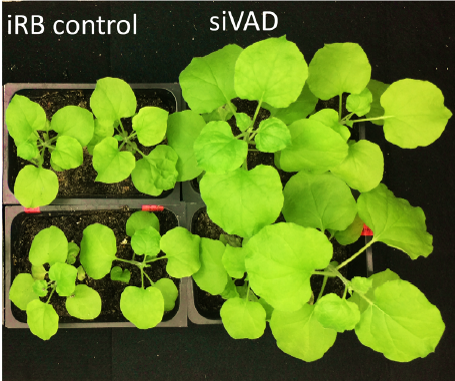Novel Citrus Genetic Immune Regulators For Defense Against Huanglongbing Disease
Background
Huanglongbing (HLB), which is caused by the bacteria ‘Candidatus’ Liberibacter asiaticus’ (CLas) and is vectored by the Asian citrus psyllid (ACP), is the most devastating citrus disease and has resulted in a significant reduction in citrus quality and quantity. HLB causes billions of dollars in losses of citrus products every year, and seriously impacts the viability of the citrus industry. Currently there are no commercially known HLB disease control methods that are efficient and sustainable.
Brief Description
Prof. Hailing Jin and colleagues from the University of California, Riverside have identified genetic negative immune regulators that control the natural immune responses in citrus against HLB. Decreasing or removing these immune regulators may lead to citrus plants that are tolerant and/or resistance to HLB. The development of HLB resistant citrus plants is less expensive and a more efficient long term solution compared to current HLB management strategy, which includes removing infected trees and/or applying pesticides to lower the ACP population.

Fig 1:Nicotiana benthamiana (Nb) model plants after exposure to HLB-like infection for 5 days. The plant with its VAD gene knocked-down (siVAD) expresses resistance to the HLB-like infection. The control plant (iRB control) is pictured on the left and is less resistant to the HLB-like infection.
Application
The creation of citrus plants that are tolerant and/or resistant to HLB.
Patent Status
| Country | Type | Number | Dated | Case |
| United States Of America | Published Application | 20240124887 | 04/18/2024 | 2021-830 |
Related Materials
Contact
- Rekha Chawla
- rekha.chawla@ucr.edu
- tel: View Phone Number.
Other Information
Keywords
Huanglongbing, citrus greening, Asian citrus psyllid, HLB, citrus, immune suppressor, defense regulator, plant immunity
